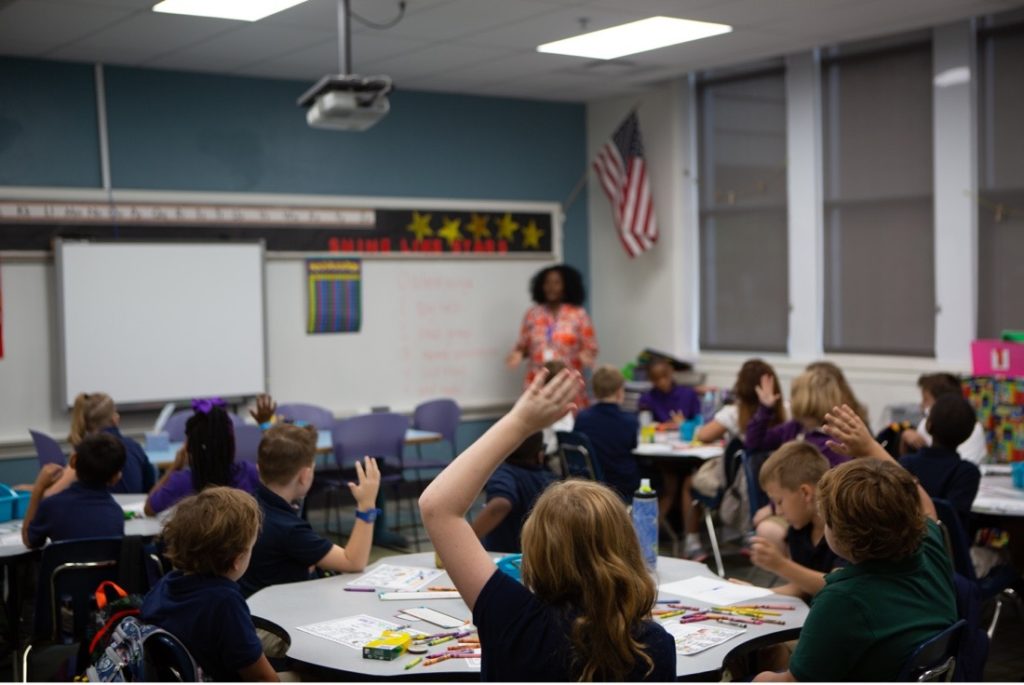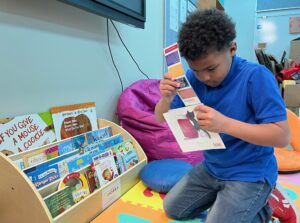Growing Together’s Communities In Schools Program puts CIS site coordinators (SC) in local schools to aid students’ success. The SCs connect students with community resources and support, including tutoring, attendance and grade incentives, help with college applications, and providing basic food and clothing necessities.
Over the past year, as students and their parents have navigated the pandemic, CIS has seen excellent progress with the 400 students they serve in the Tulsa community. Below are just a few success stories showing the impact these site coordinators make.
Ronell: Ronell, a junior at a local Tulsa high school, had an incredibly tough school year. In addition to the challenges brought by distanced learning, his mother has spent the last couple of months in and out of the hospital, leaving Ronell to take on household tasks and contribute to the family’s income on top of his schoolwork.
Despite these obstacles, Ronell, with the support of his CIS case manager and therapist, has continued to engage, keep his grades up and make progress on his personal goals. Through his positivity, hard work and strong relationships, Ronell is proof that it is possible to be successful even during a worldwide pandemic.
Isabel: Isabel, a self-employed immigrant to the U.S., faced the challenge of paying legal fees for a divorce, all while navigating a pandemic. Fortunately, Isabel was able to get connected to the CIS site coordinator (SC) at her children’s school. The SC added Isabel’s children to her caseload and began personally working with Isabel to address her family’s challenges.
Because of a Growing Together Reset grant and the Tulsa Immigrant Relief fund, Isabel and her children have remained stable and avoided eviction. Additionally, Isabel’s children were supplied with the clothing, school supplies, and tutoring they needed for distanced learning. This enhanced academic support has ensured the improvement of the children’s grades, despite the challenges the pandemic created and has enabled them to enroll in extended learning at their school this summer.
Andy: Andy, a young student, joined his school late into the academic year. During his first week, he destroyed the classroom, ran from class and the building, disrupted his classmates and struggled to acclimate to the school. After the CIS site coordinator (SC) started to build a relationship with Andy and his mother, they cautiously began to trust the SC and other school staff. CIS learned that Andy had bounced from school to school, been kicked out of multiple preschools, and had lived with different family members throughout his life. Because Andy’s mom struggled with addiction, it was challenging for her to support him while also helping herself.
Andy’s SC began regular check-ins with the family and set up a schedule to support Andy while he was in the classroom. After a couple of weeks, Andy made a lot of progress; he could stay in the classroom, ask for assistance to regulate his emotions and follow the classroom routine. Through multiple support systems, Andy’s mom was also set up in an in-patient facility to support her and Andy. Unfortunately, this facility could not transport Andy to school, so his SC was able to get Andy transferred to a fully remote learning program. Andy is logging on daily and completing his assignments while showing personal growth and commitment to his work.
Michelle: Michelle first entered the CIS program as an unfocused junior high student struggling with her grades. Michelle and her school’s site coordinator (SC) slowly began building a relationship, and despite struggling with school, Michelle was willing to work to earn grade incentives. As their relationship grew, the SC realized that Michelle was spending a lot of time on her phone, showing signs of insecurity, was unorganized, and continued to make poor choices.
During parent-teacher conferences, the SC brought these concerns to Michelle’s parents and offered resources, including counseling. Her parents agreed, the SC made a referral, and Michelle’s counseling began right before the pandemic. Since then, this counseling has helped Michelle develop more trust in her parents, and her therapist has assisted with wraparound services, like working with the SC to obtain basic needs for the family.
With these resources provided by CIS and the SC, Michelle has worked hard and passed all her classes last semester. Her SC believes that with support, Michelle will find the strength to finish high school strong next year.



